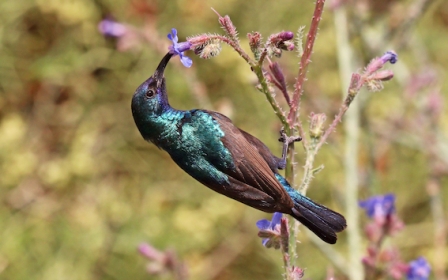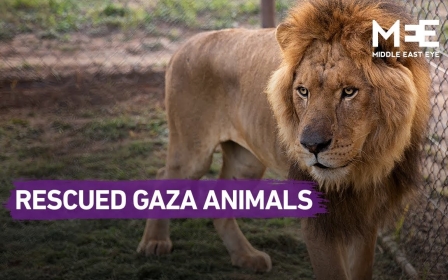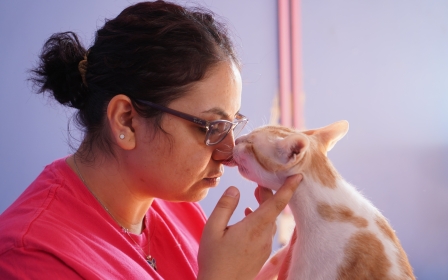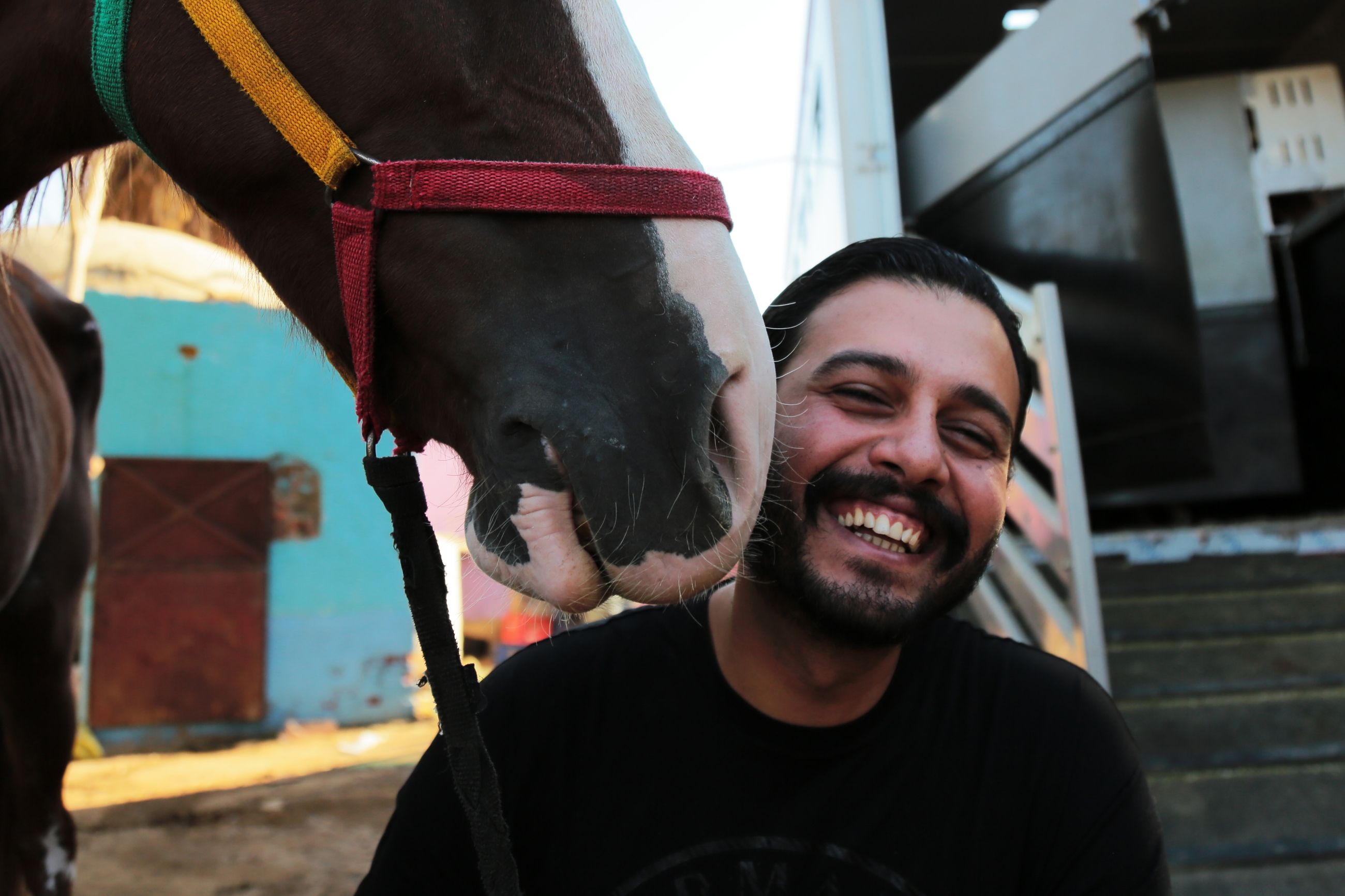
In pictures: The veterinarian saving Egypt's abused and injured horses
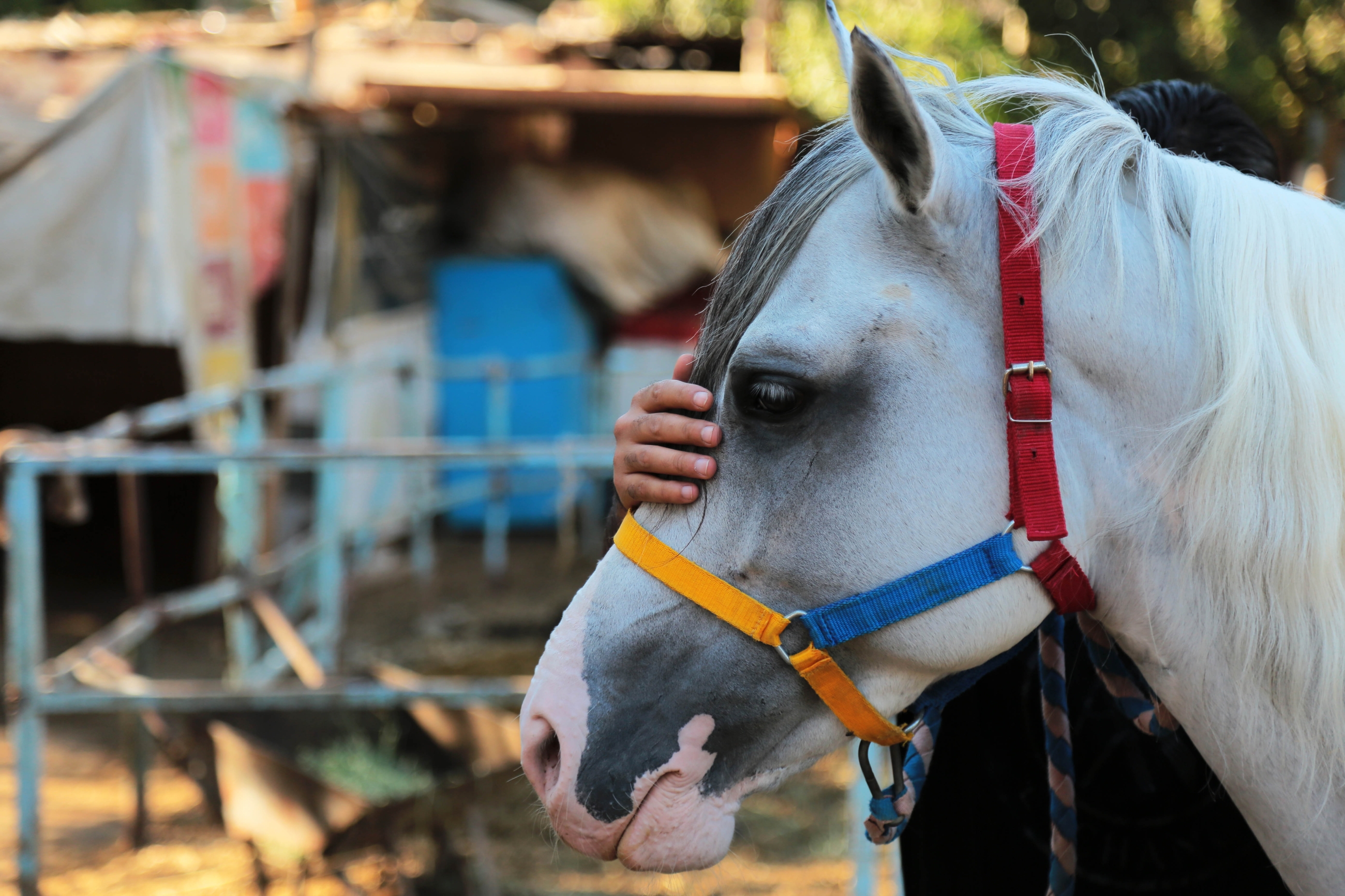
For over a decade, veterinarian Hatem Settin, from Egypt’s Mansoura governorate, has been the saviour of many injured and neglected horses.
His love for horses began in childhood when he became fascinated by the connection he was able to build with them.
Along with his family, he spent a lot of time around animals and learned all about them.
“I’ve always loved horses,” he tells Middle East Eye. "From when I was young I’d always draw horses, talk about them, and want to spend all of my time with them.”
Now, he’s responsible for taking care of dozens of horses, many of which have been abused and injured.
He nurses them back to health on a private farm called the "Tortured Animals Farm" in Saqqara, Giza, which is owned by a local horseman. (All photos by Fadel Dawod)
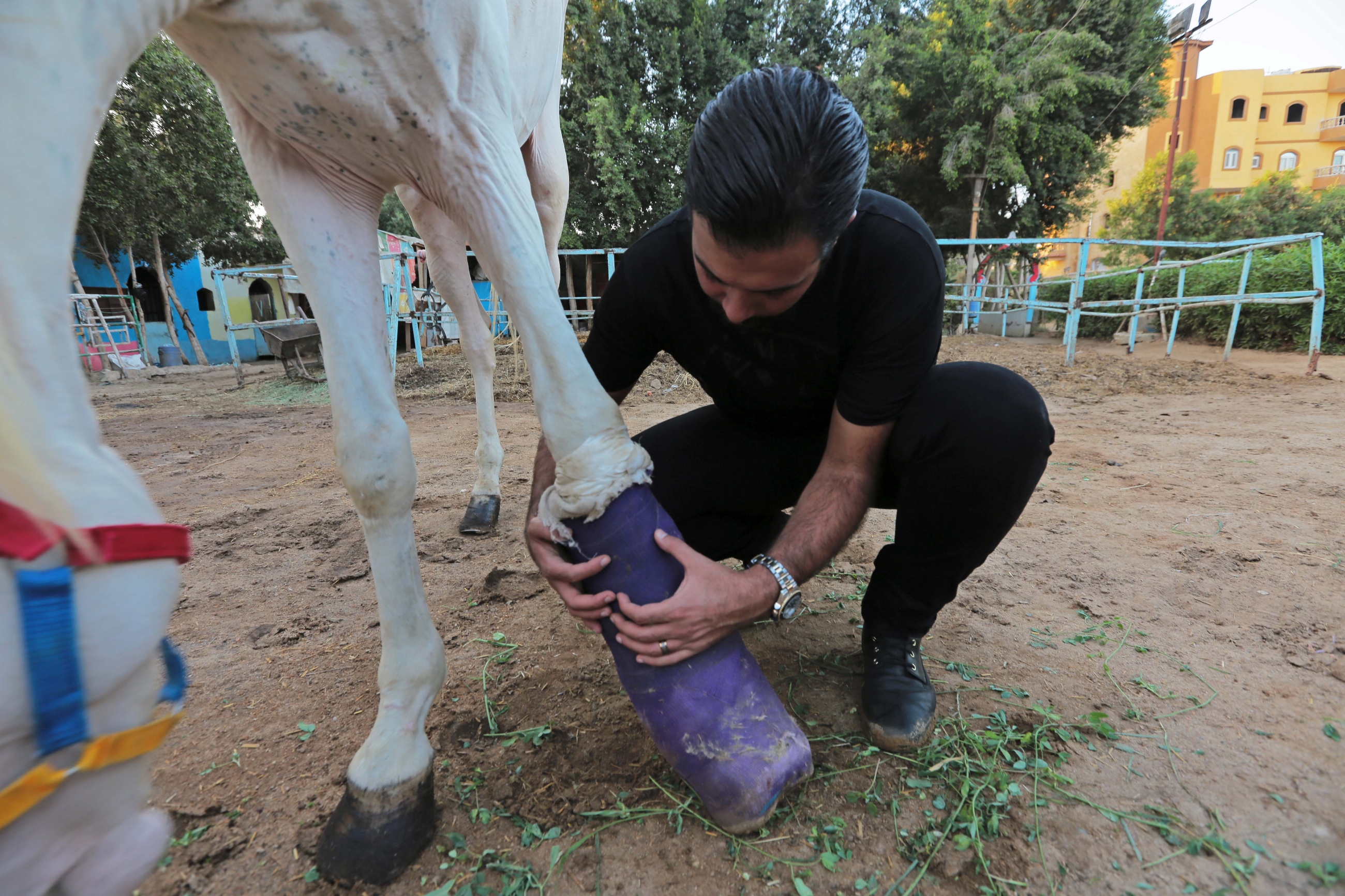
Settin went to university to study veterinary science and learned the skills necessary to become a vet and work both in Egypt and internationally.
“I have now worked as a vet internationally for over 12 years, and came back to Egypt after having reached one of the highest levels in training,” he explains.
Settin says he worked in a number of different countries, including Algeria, America, and around Europe.
Although he found it tough establishing his career overseas in unfamiliar surroundings, Settin says working abroad was rewarding and taught him a lot.
“I kept working hard until I had [worked with] horses around the world - it was tiring work and meant that I would go on with little sleep and lived in difficult conditions,” he added.
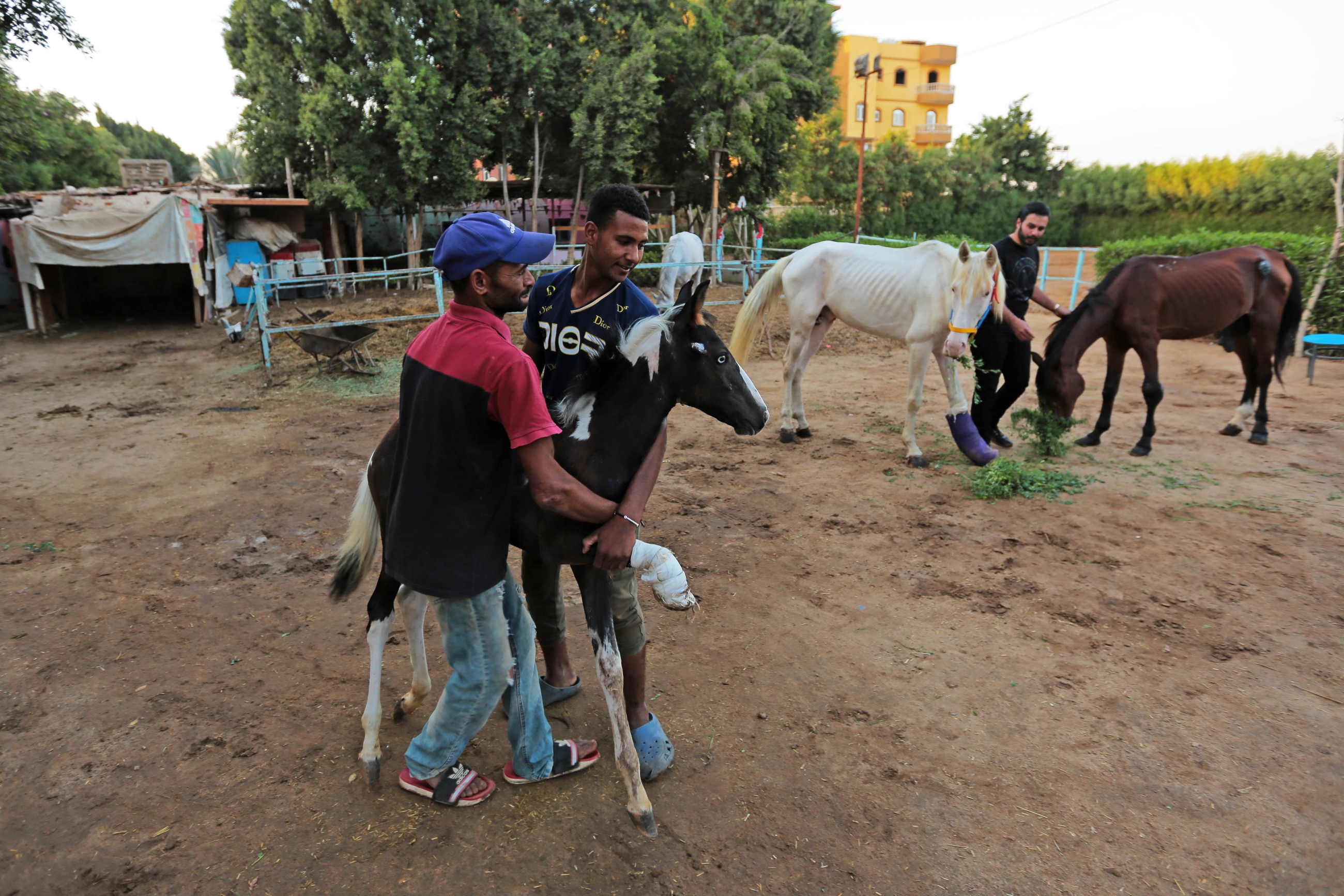
Settin not only wants to rescue neglected horses in Egypt but also change the culture and attitude toward caring for animals in his country.
“People always think vets are stupid and they are often seen as a lower standard to medical doctors,” he explained. “However, I see it as the complete opposite - vets are extremely important and need to be appreciated more. Outside of Egypt, people respect vets a great deal, but we’re still lagging behind in that area here.”
At the farm, he has a handful of employees who help him take care of the horses and assist him, all of whom are paid from Settin's savings, since he does not accept donations.
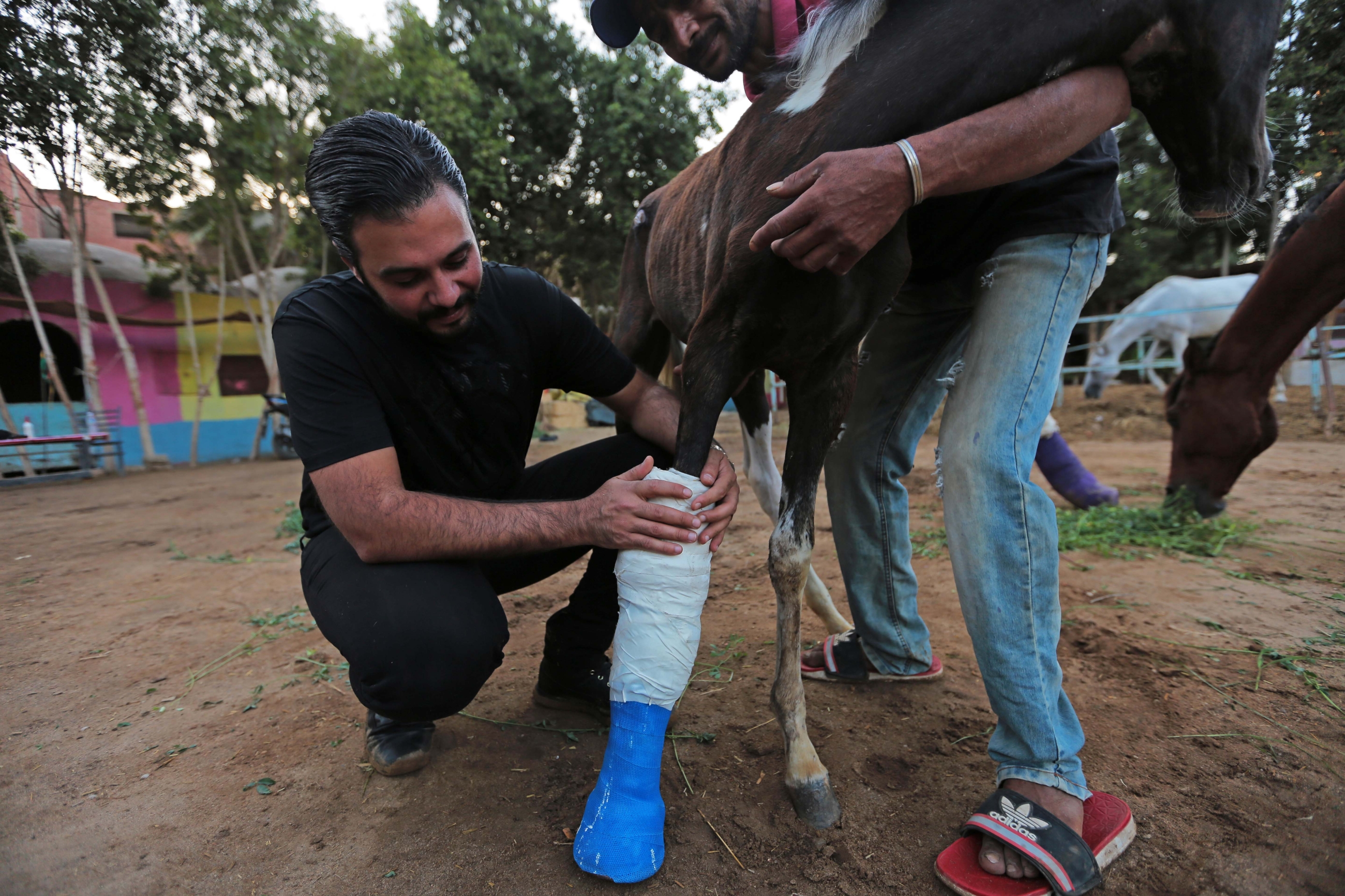
Ten years ago, Settin started documenting the horses he treated at the farm, posting his work and videos online.
“I wanted to show people that there was a veterinarian in Egypt who had dreams, ambitions, and a message about caring for animals,” he explained.
He says that he has documented the treatment of over 500 injured horses online.
According to Settin, people did not immediately resonate with the content he was sharing online, and some even mocked him for it.
“People didn’t really understand and would ask me what I was doing, but I continued anyway and soon my follower count started to gradually increase,” he says.
Now, he receives widespread praise for his efforts, with many social media users staying updated with his work and commending him for his efforts.
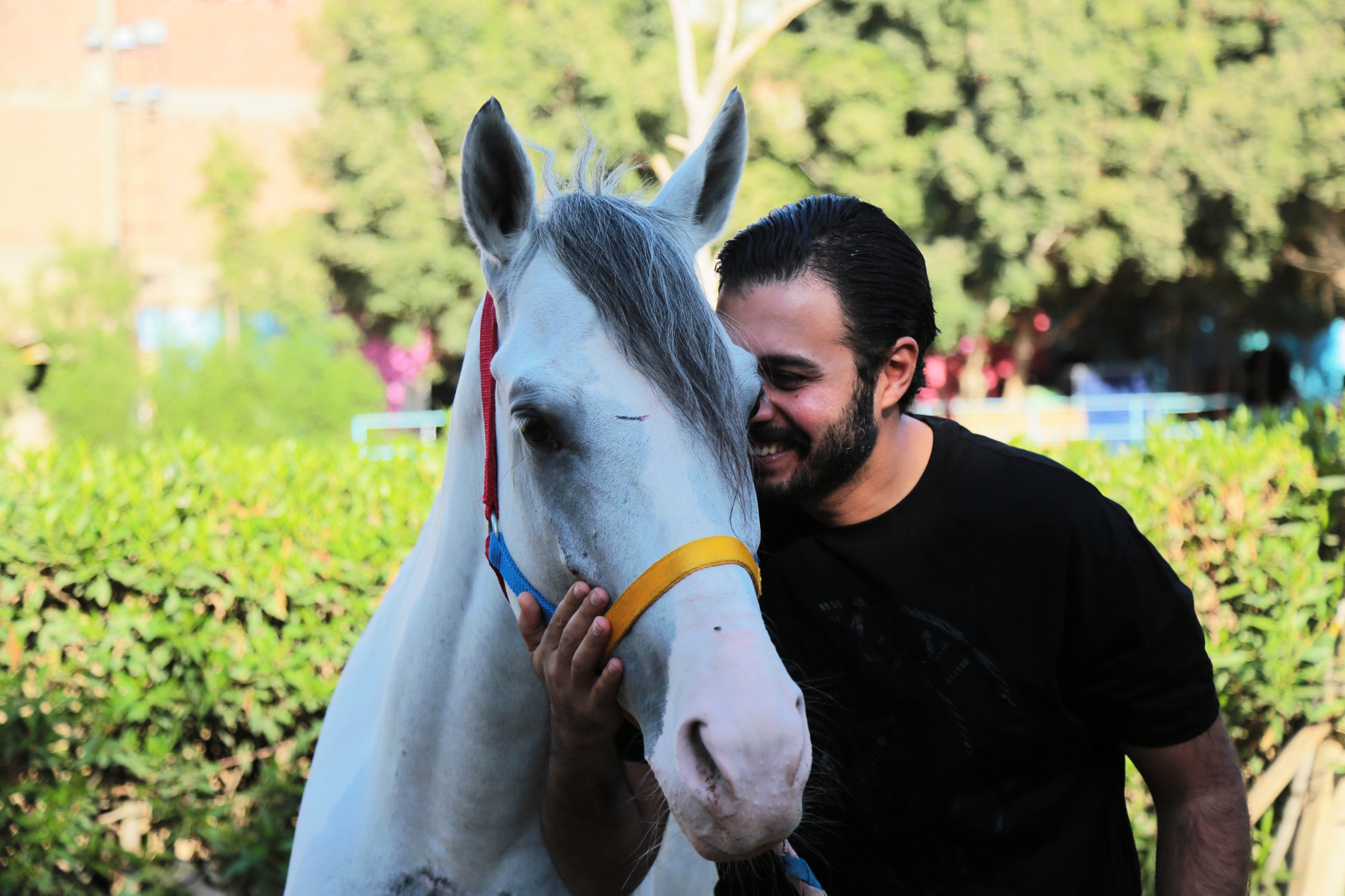
Many of the horses that Settin treats have been badly neglected, as a result of their owners not being able to afford to treat them, or because they don’t know how to.
“I’ve never rejected treating an injured animal, no matter how tough times were. People are often afraid of caring for the horses because they’re worried about the spread of disease or the burden of them, but I was able to find this farm and help treat them,” he added.
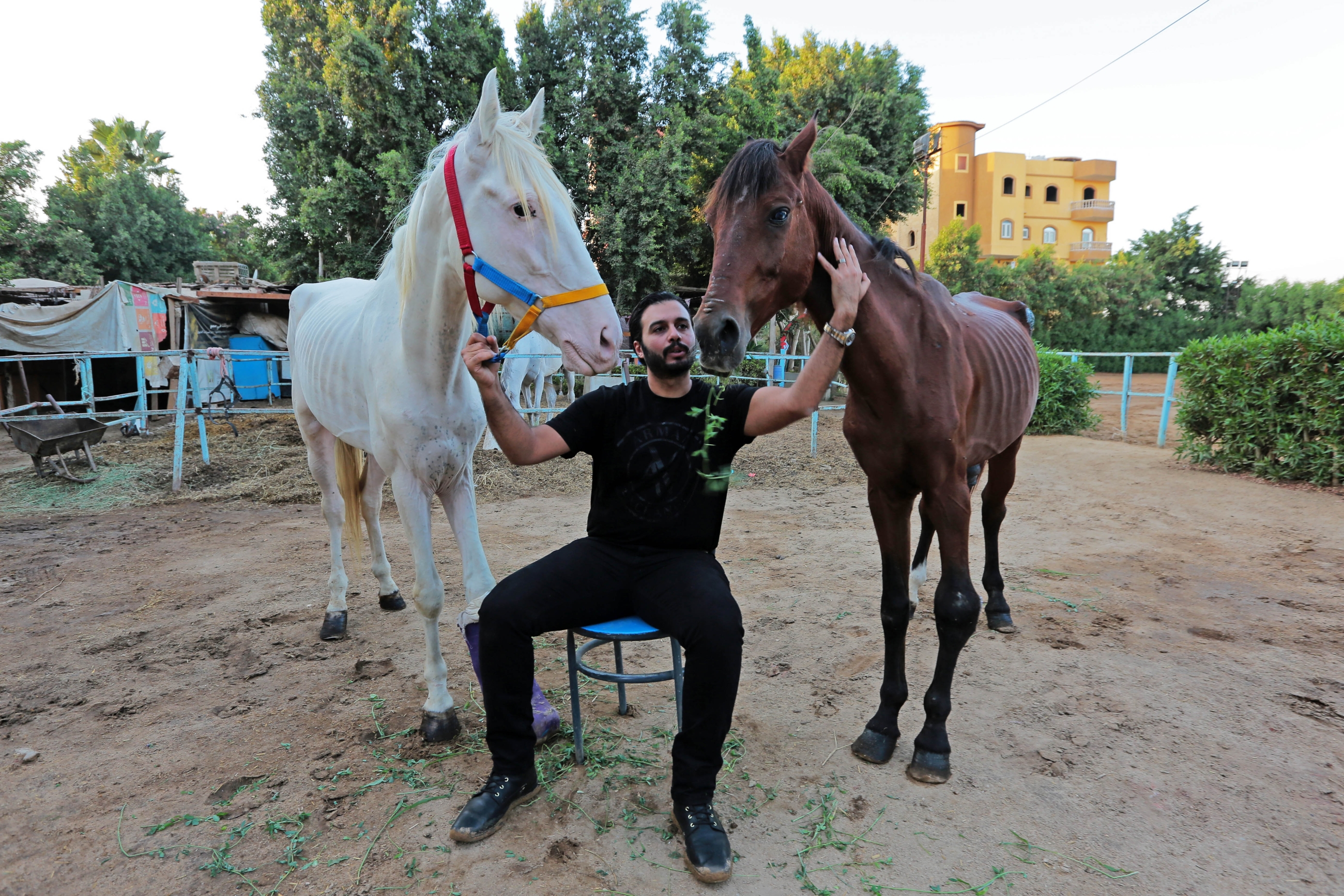
Although treating the horses can be expensive, Settin continues to use his personal savings to treat them, sometimes for a number of years.
He believes he has been gifted with the ability to connect with the horses and understand their needs.
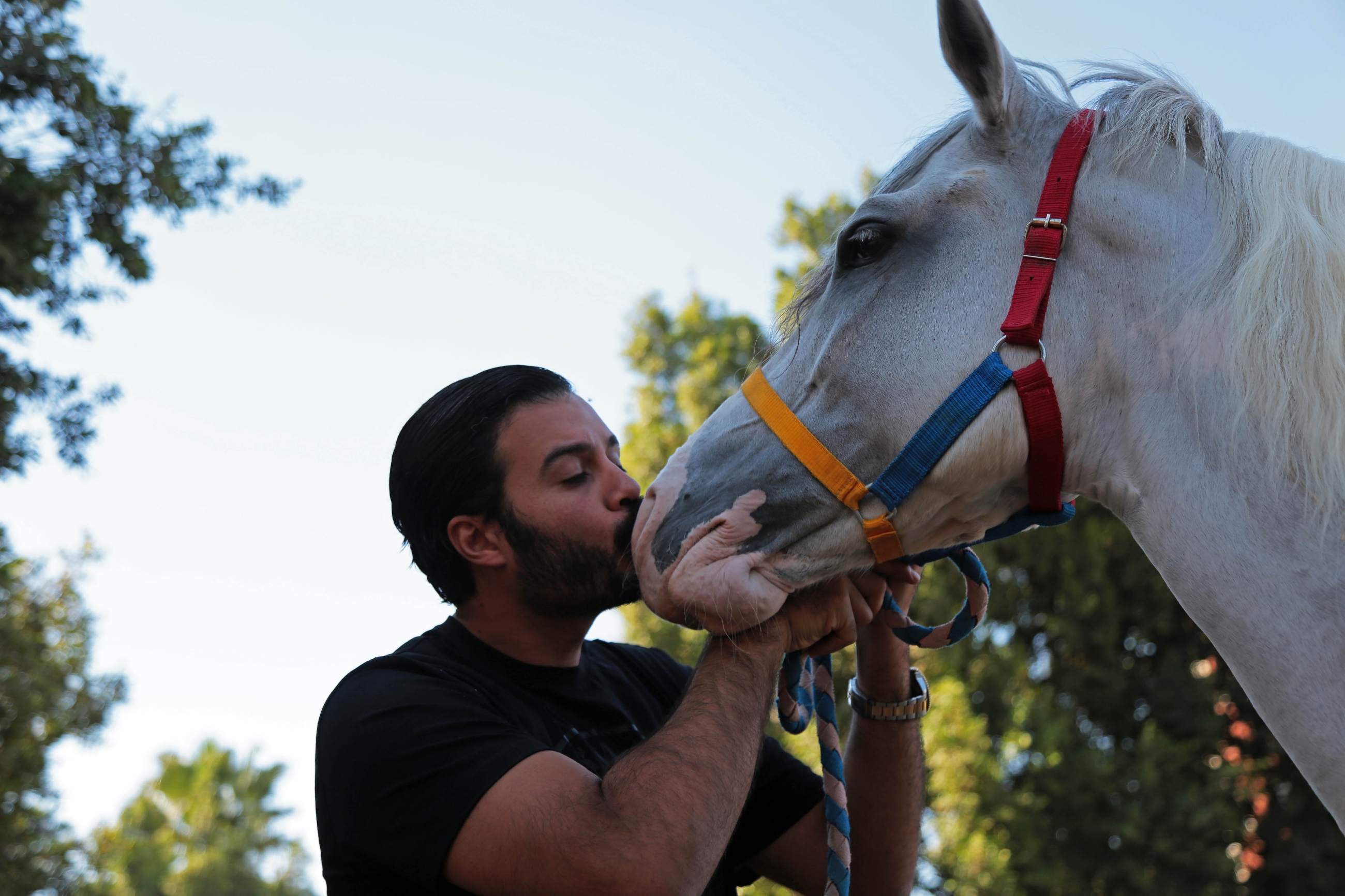
Settin travels to nearby cities, finds abandoned horses, and takes them back to the farm where he examines them and gives them the necessary treatment.
Over the years, he has helped many horses make a full recovery, some have even regained part of their vision, while others have been able to walk properly again.
“People can complain and express themselves when they are suffering, but animals can’t, and most of the horses I see are left out in the scorching heat with no food or water,” he says.
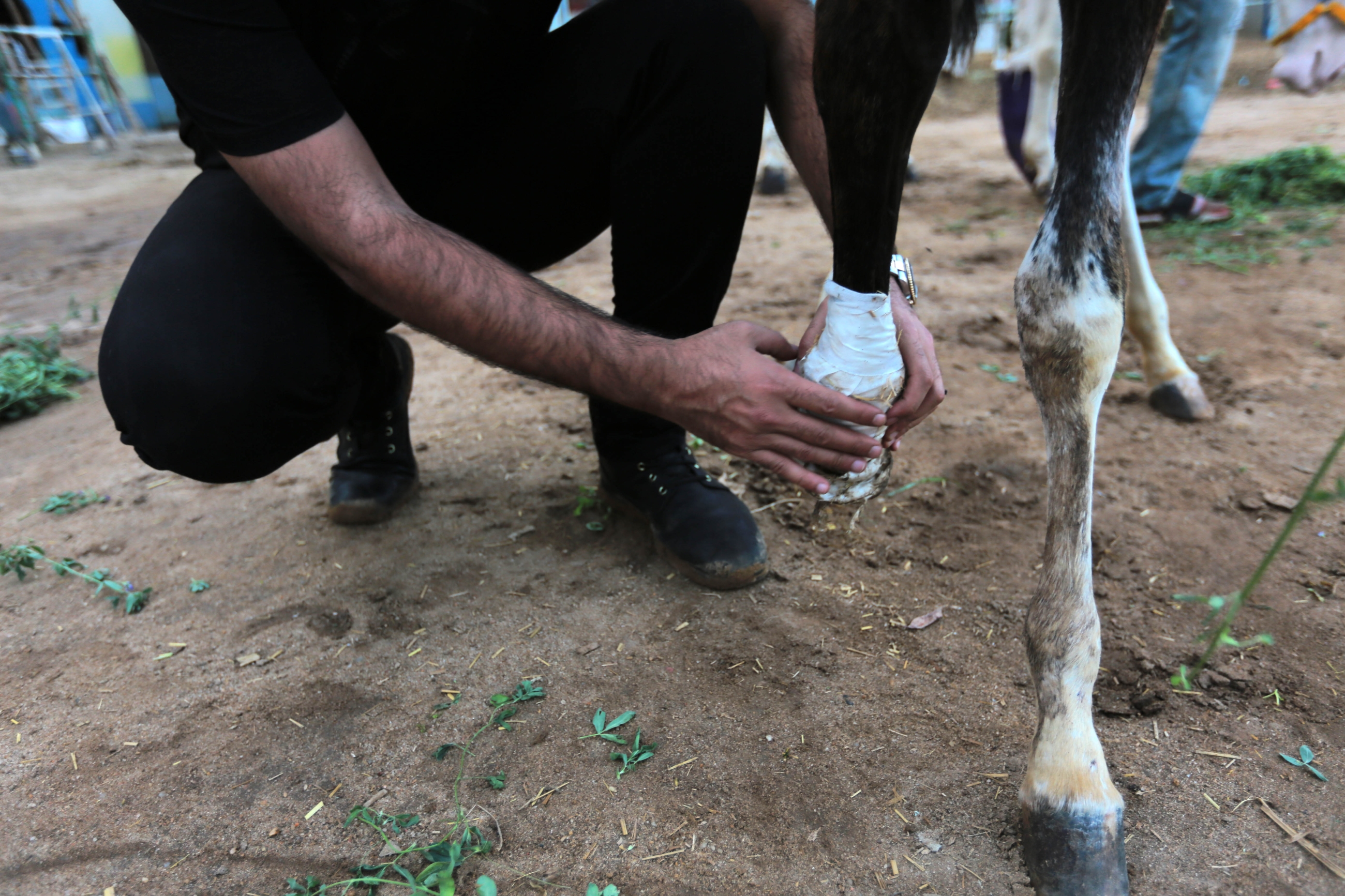
The horses on the rescue farm are all named after the experiences they’ve been through.
“One of the horses is named Mansi, Arabic for ‘forgotten’, and I named him that because I found him left by the bins. All of the horses I find are left out in the streets with no food and are severely hurt,” Settin explains.
“I think it’s really unfair and that we’ll be held accountable for how we treat animals,” he adds.
Another horse on the farm is called Aziz (meaning 'dearest'). Settin said that when he found him, his eye was punctured because someone caught him eating from his land. He was then tied up to the back of a vehicle and dragged along the road.
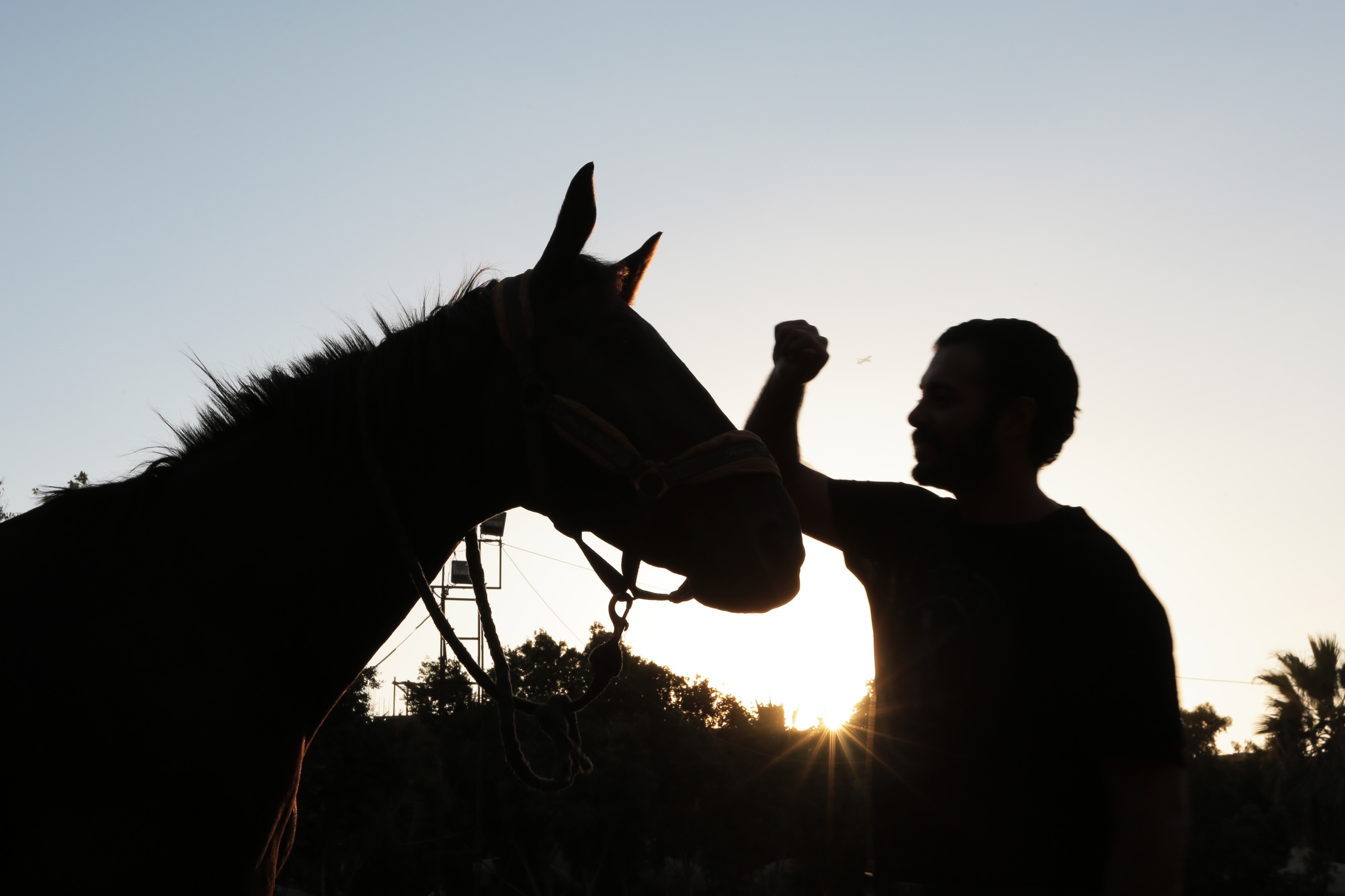
Settin says he is inspired to keep helping the horses, not seeking any monetary benefit, because he believes he’ll be rewarded in other ways and that it is the humane thing to do.
He also maintains that people in the country do not do enough to help animals, despite many of the cases he finds being easily treatable.
“One of the horses, Maksur, which means 'broken' in Arabic, had broken bones and everyone told me I should just leave him to die peacefully. But I don’t like to put animals to rest so easily. I see that as a final resort, only if you’ve tried five hundred other options first,” he says.
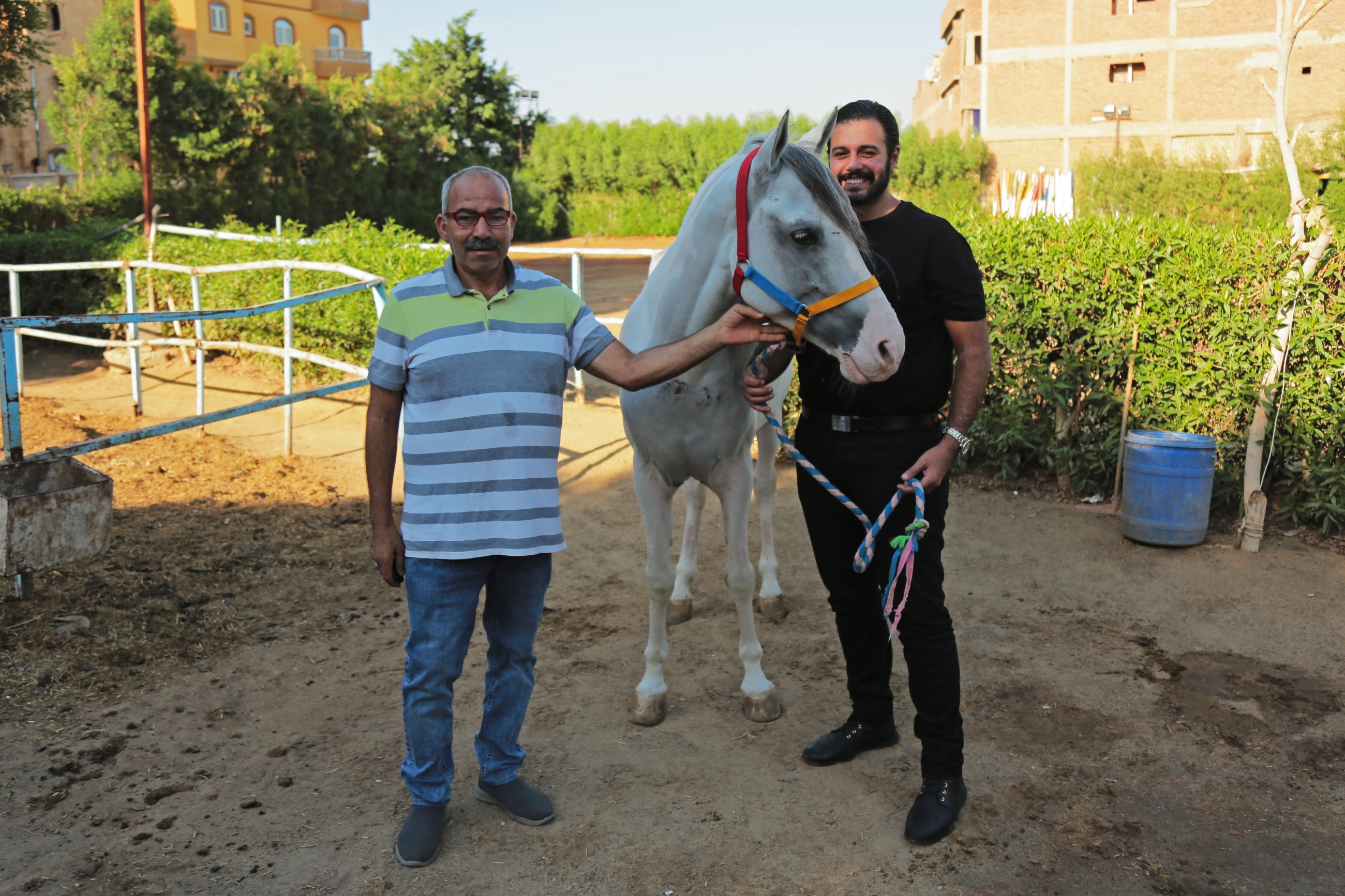
While Settin has been able to rescue dozens of horses, he says that he hopes to expand his project further in the future.
One of his main ambitions is to establish a charity that supports abused and mistreated animals in Egypt in an effort to raise awareness about their poor conditions, as well as educate people on the proper way to care for them.
This article is available in French on Middle East Eye French edition.
Middle East Eye delivers independent and unrivalled coverage and analysis of the Middle East, North Africa and beyond. To learn more about republishing this content and the associated fees, please fill out this form. More about MEE can be found here.


